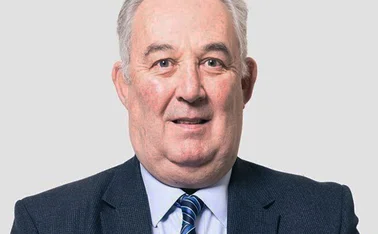
Spotlight: Claims - Selecting the right TPA partner

When it comes to working with a third-party administrator for property claims, how far should an insurer go? Whether it is taking on service from start to finish or only focusing on key elements such as the repairer network or emergency call out facility, there are a wealth of options out there and numerous providers ready to pick up the reins
Once, outsourcing was a one-size-fits-all proposition. Now, there are providers who are prepared to offer a highly tailored and scalable approach, bringing in specialist people, supplying frequent claims analysis data and even on occasion, setting up dedicated offices close to the client.
But what are the motivations to outsource and what should the key considerations be in selecting the right partner? Also are there risks that should prompt insurers to be wary of downsizing their inhouse capability?
How much or how little to outsource will be down to a range of factors. A large insurer will almost certainly have its own in-house people, but back this up with an externally managed loss adjuster and repairer network. A managing general agent, however, is likely to be run on much leaner lines and aside from having a small expert claims team in-house, and so it may make sense to handover the whole cycle to a TPA, from first notification to settlement.
There are pros and cons to outsourcing, but it is prevalent throughout the British economy, with the NHS and prison service among those using external service providers. Serco, Atos and Capita will have their supporters and detractors, but whatever opinions are held, they are here to stay.
Likewise, insurers need their business partners and experience over the years has shown that they can have longstanding and effective relationships with those that meet regulatory requirements and can be trusted to provide the customer with a fair and professional service. For example, One Call Insurance, a large intermediary based in Doncaster works with a TPA to provide call out for home emergency claims and accidental damage repairs. Josh Barnsdale, distribution director, says his advice is to “do your due diligence and look at their competencies – you also need to be comfortable working together. Look at where you also need support with in-house and this is where outsourcing can make a lot of sense. We have found the management information supplied to be extremely helpful in helping us analyse the customer experience – and we also take reviews of the service seriously too.”
Why use a TPA?
If the insurer is short on resources, then a TPA makes perfect sense. But equally, large insurers are highly focused on reducing costs as shown by their redundancy rounds.
An insurer should be able to either reduce its claims headcount or redeploy staff. But, although figures of up to 30% inhouse cost reductions have been bandied about, this should be taken with a very large pinch of salt. If the TPA fails to deliver on its obligations, then the insurer may well find that savings fail to materalise and there will be additional costs in terms of claims being badly managed or even wrongly paid if there is delegated authority. People are quick to complain and so negative reviews can appear within minutes, causing reputational and potentially regulatory problems.
On the other hand, a TPA may make life considerably easier for an insurer in various ways, such as taking calls from customers, stepping in to provide additional surge resources if needed or perhaps dealing with specialist areas such as subsidence claim handling and monitoring.
Patrick Hayward, consultant with Altus Consulting, comments: “For both retail insurers and MGAs, the approach to outsourcing claims handling to TPAs needs to evolve to reflect changes in the industry. Whether they are looking to reduce operational expenses, utilise expertise for niche products, or enable the scaling up of resource during periods of significant growth, insurers and MGAs need to ensure that customer experience is kept front and centre in this strategy.
“And with the emergence of MGAs as a driver of product innovation, the test and learn nature of this environment means that sellers of insurance may need a more flexible claims management capability.”
He adds: “For outsourcing arrangements to be sustainable, there is a need to go beyond the regulatory requirements for oversight and control, and to ensure that outsourced operations are aligned to the provider’s brand values, claims philosophy and vision for the customer journey. The risk is that without the right controls and operating model in place, the provider could lose control of the customer experience, and with this, the ability to develop or maintain a single customer view.”
Obviously, saving on cost is going to be a big pull, but equally, delivering great service and helping build loyalty is a major attraction of using a TPA. So, what types of measures should an insurer look for?
These include a TPA being well resourced and responsive and any customer who has called an insurer direct to either notify or deal with a claim will be aware that there can be lengthy waiting claims.
Enhanced service
Adam Murray, claims relationship manager at Arch Insurance Europe, works with a number of TPAs and says working with them is important because it can mean enhanced service and useful management information.
Indeed, it is clear that TPAs must be prepared to work hard to fulfil needs. Murray comments: “You need to work closely and I set a high bar in terms of standards for all our claims – so a high-net-worth customer, for example, should expect to be answered after three rings. We keep a close eye on the standards of work and contractors are vetted and subject to a scoring system to ensure they are providing a good service.”
Jeremy Trott, claims director at Ecclesiastical, adds: “We work closely with our loss adjuster supply chain to ensure we have a comprehensive network of specialist suppliers that we collaborate with to provide a thorough end-to-end claims service.
“They provide expertise in the specific challenges our customers face, focusing on areas such as historic buildings, heritage, and specialist personal injury rehabilitation. Our collaboration with our supply chain aims to provide a fast and effective claims experience which looks to get customers’ lives back on track without delay.”
Insurers expect their TPA to jump through hoops or they risk being deselected. Even if an insurer reduces some of its lower levels of claims personnel, there has been a trend in recent years to invest more in senior supply chain and procurement professionals who work closely with the TPA to ensure promises are kept.
They will be responsible for choosing who wins the contracts and that these set out the necessary key performance indicators and have strict service level agreements. The TPA will have no opportunity to rest on its laurels and will also be expected to put forward ideas for innovation and how standards can be improved yet further.
As Trott adds: “When it comes to selecting these suppliers we take a very rigorous approach to selecting them and then form strong relationships with them to help us deliver the highest possible customer service. We seek to work in true partnership with selected suppliers that demonstrate the highest levels of customer excellence, cost management and expertise in our niche markets. Our carefully chosen partners understand and operate to our claims philosophy and wider company ethics – something which we place enormous value on.”
If a TPA takes short cuts with its suppliers, then this could quickly sour the relationship. An example would be with home emergency cover – if the policyholder finds they are unable to gain access to a repairer within an acceptable time period or the contractor fails to do a good job, then trouble will ensue.
A spokesperson for Churchill says of the home repair network it uses: “The network includes a database of honest and reputable tradesmen. The insurer will try to deal with your claim quickly, find the right people for the job and liaise with them directly. The insurer only uses vetted builders and they sort all the costs out directly with them. Any work performed by their builders on your house is guaranteed for 12 months.”
This is an important point – if the customer has no confidence in the repairer and instead wants to use their own, then the insurer may still have to pay for the work, but may not offer a guarantee. Should there be subsequent problems caused by a customer’s choice of contractor then again this could lead to further claims being refuted. This is not just an issue with domestic claims. Commercial premiums can be considerable and business owners too want to see insurers step up to the mark.
For the TPA, there is considerable responsibility in ensuring their repairer networks provide both availability and quality. According to Rebecca Rogers, head of property claims for Allianz: “We encourage our customers to contact us as soon as possible if their commercial property is damaged so we can advise them on the best course of action.
“Of course, in an emergency, they should take any urgent action required to protect their property from further damage, like turning off the mains for instance, or safely removing broken glass from outside windows or shop fronts. But they should not authorise permanent repairs without contacting us.
“As an insurer, we know the standards to which a building should be reinstated and we have access to different suppliers and repairers. They can assist with drying out water damage, cleaning up smoke damage, boarding up or replacing windows, investigating drainage issues and dealing with pest control and general electrical problems, among other services.
“We work with reputable providers because we want repairs to be efficient and sustainable, lowering the risk of future claims. We regularly monitor our suppliers to ensure they align with our quality standards and meet our customers’ expectations. We want our policyholders to have the most positive experience possible.”
A further important point that looks set to gain increasing prominence is sustainability. Aviva, for example, has said it plans to have net zero carbon emissions by 2040 and its supply chain is also expected to play a part in this.
Property claims lead, Nick Mallinder, says expectations include accessing flooded properties as quickly as possible to reduce drying times and repairing over replacing where possible, where this can be done to the customer’s satisfaction.
“We were one of the main sponsors of the Code of Practice on flood resilience launched last year. This brings consistency and guidance across the market and gives confidence to home and business owners to ensure more properties are resilient to flooding in future.”
A range of measures
This requires contractors to be cognisant with a range of measures to help prevent water from re-entering a property and ensuring repairs support this, such as appropriate flooding and moving sockets and other electrical equipment to above expected flood levels. “We advise customers on flood resilient/resistant repairs, install these at no extra cost to customers and help them to access local authority grants,” he says.
TPAs may need to ensure that their contractors meet with agreed sustainability measures, particularly as environmental concerns gain ground. Equally, use of ‘smart’ home technology could result in more technically repairs being needed and again, TPAs will need to get their pricing right for these and ensure they have the right people on board. Certainly, those that are able to cover these bases already, may also find it helps when tendering for business.
So, how is the land lying now for TPAs? Is there sufficient work to go around and what should they be focused on?
It may be unwelcome that the pandemic has led to a reduction in property claims – although certainly not for insurers as they are expected to have lower costs for their 2020 accounts. Indeed research by price comparison site Hello Safe said these savings could be as much as £386m, largely because people at home prevented burglaries and meant any domestic incidents could be sorted more quickly.
While lockdown continues to ease, so-called hybrid working could also mean fewer claims and so any TPA will need to show it can exceed expectations and bring something new to the party.
There is also the role of technology – insurers are increasingly turning to artificial intelligence and chatbots to reduce costs and boost efficiency. Amelia, the virtual assistant and described as a digital human, was launched to much fanfare last year – and is being mooted as asset to a claims department.
This may become the way of the future and as Hayward comments: “For TPAs, a key threat is that insurers will look to insource and automate processes they currently manage, as part of wider digital transformation activities. TPAs need to demonstrate that they can be the insurer’s long-term partner for transformation, by developing the analytics capabilities which can enhance the insurer’s data strategy, and consider partnering with insurtech vendors that enable them to improve and streamline the claims process.”
The TPA sector has shown it can effectively serve a demanding insurance market and there is no doubt that their capabilities will remain a core part of claims practice. But there are also
emerging requirements that could well prove disruptive, creating both challenges and opportunities.
Only users who have a paid subscription or are part of a corporate subscription are able to print or copy content.
To access these options, along with all other subscription benefits, please contact info@postonline.co.uk or view our subscription options here: https://subscriptions.postonline.co.uk/subscribe
You are currently unable to print this content. Please contact info@postonline.co.uk to find out more.
You are currently unable to copy this content. Please contact info@postonline.co.uk to find out more.
Copyright Infopro Digital Limited. All rights reserved.
As outlined in our terms and conditions, https://www.infopro-digital.com/terms-and-conditions/subscriptions/ (point 2.4), printing is limited to a single copy.
If you would like to purchase additional rights please email info@postonline.co.uk
Copyright Infopro Digital Limited. All rights reserved.
You may share this content using our article tools. As outlined in our terms and conditions, https://www.infopro-digital.com/terms-and-conditions/subscriptions/ (clause 2.4), an Authorised User may only make one copy of the materials for their own personal use. You must also comply with the restrictions in clause 2.5.
If you would like to purchase additional rights please email info@postonline.co.uk









